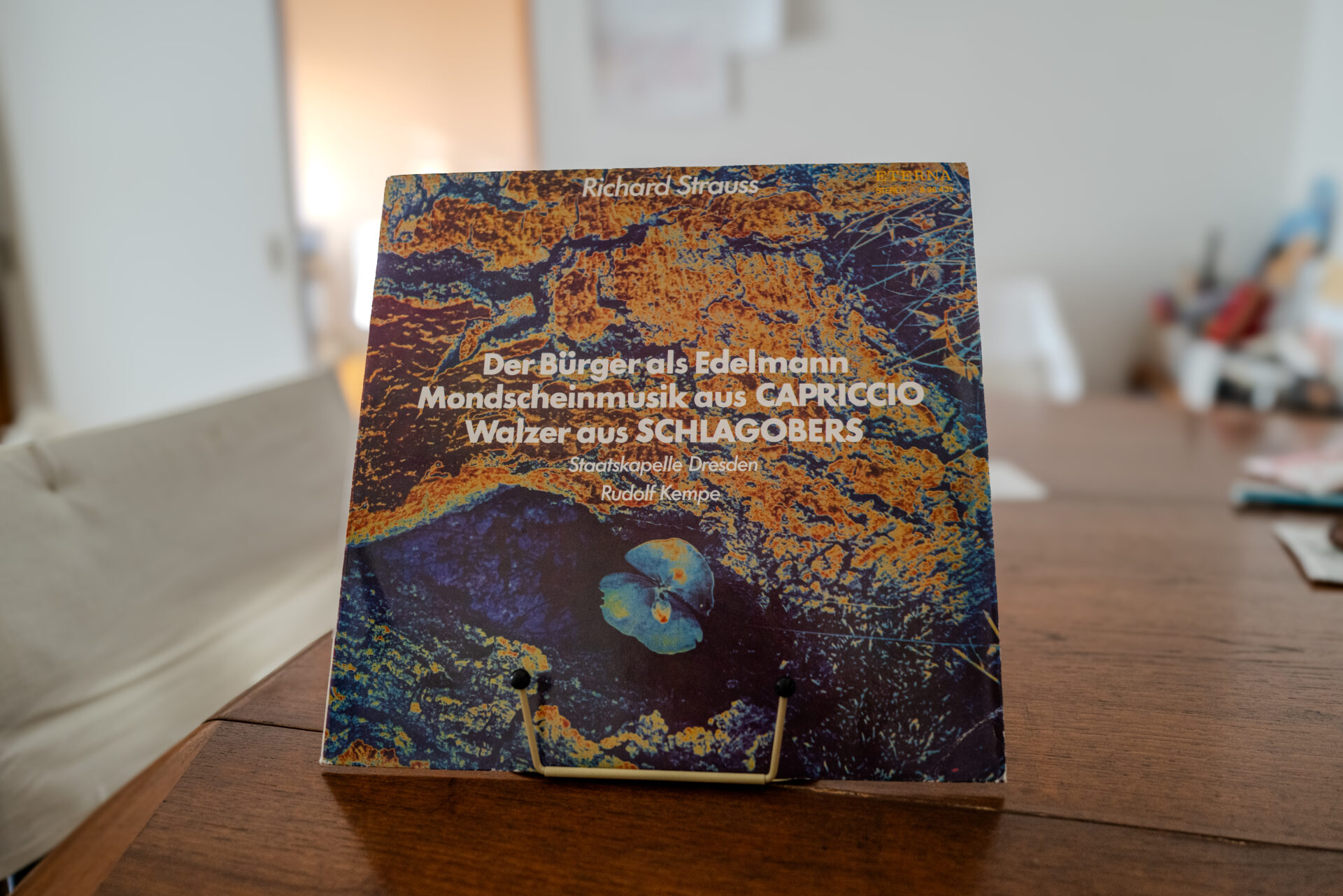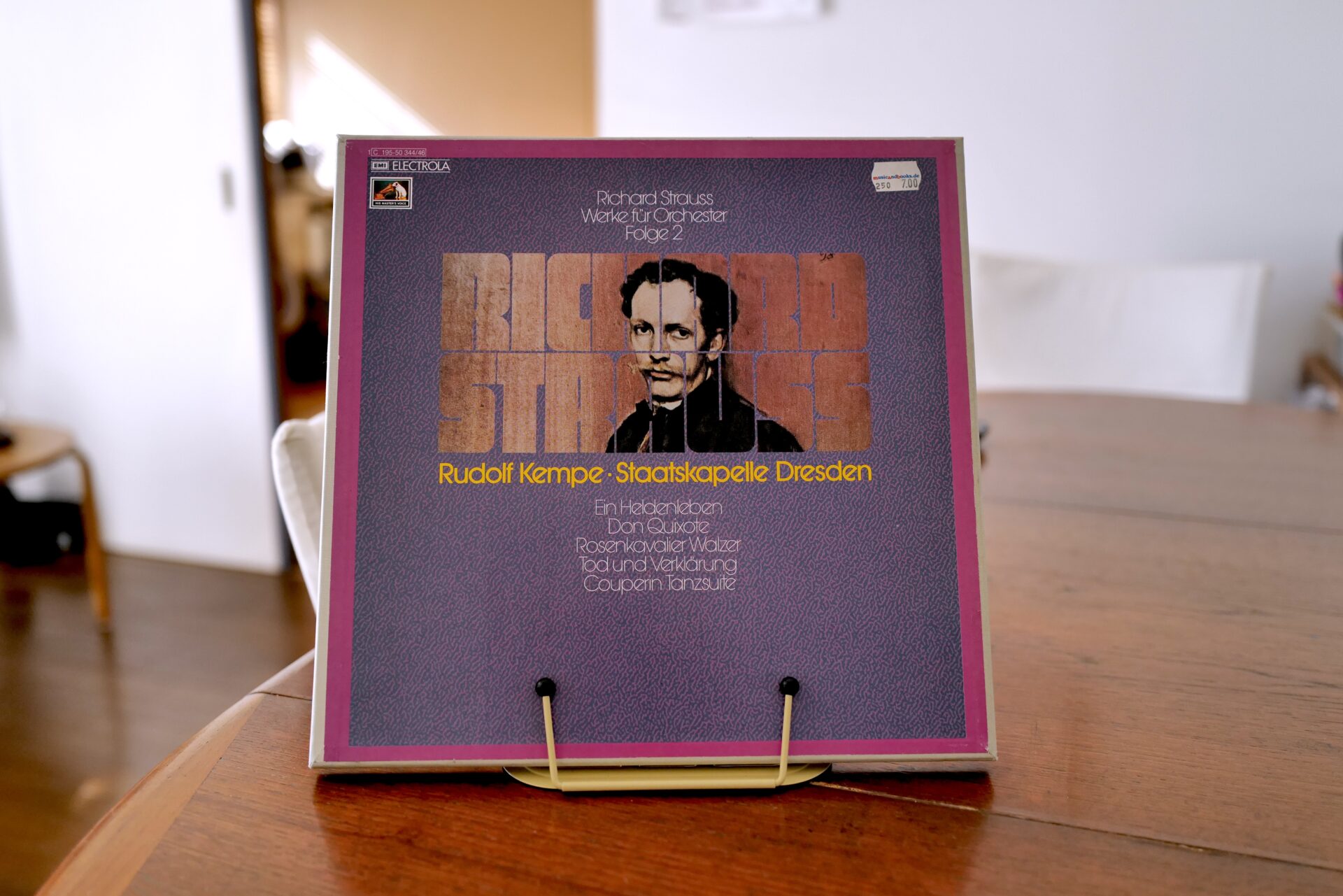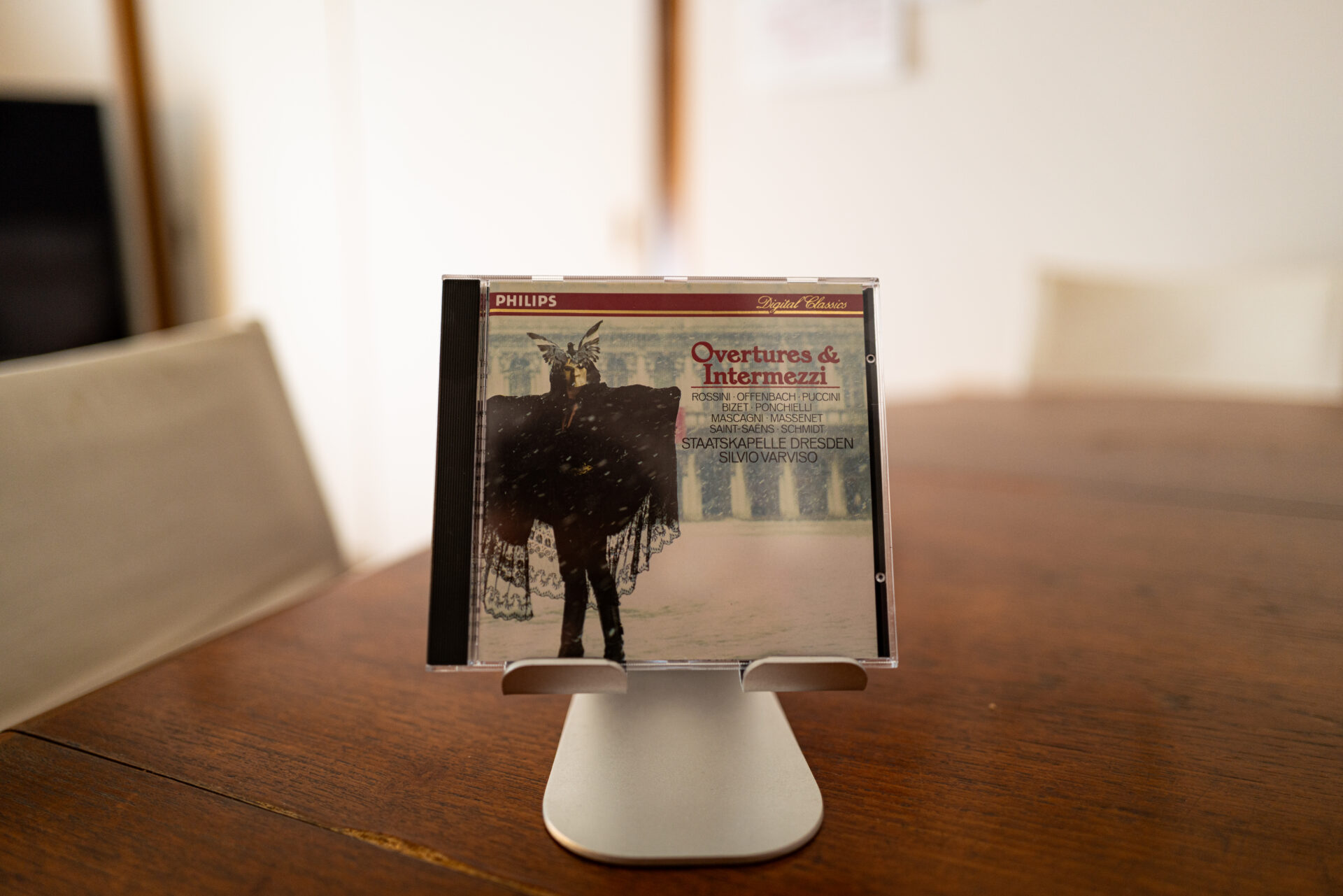
Until recently, there was a recording that was called “Peter Damm’s legendary but mysterious performance” because it was not recorded on CD. That is Strauss’s “Moonlight Music” that I will be introducing today.
At a time when records were still hard to come by, My Master searched for used records domestically but couldn’t find any, so he joined a dubious overseas auction site. He said he bought it from a Russian collector, but it didn’t arrive for nearly two months, which made him really nervous.
It was pressed in East Germany, probably purchased by someone in the Soviet Union at the time, and distributed in Russia after the collapse of the Soviet Union, and is now in the hands of its owner in the Far East. Records that travel through time and space still have a flavor even now.
Perhaps due to many enthusiastic requests, such a valuable recording has now been included in Kempe’s complete collection of Richard Strauss orchestras, and can be easily listened to on the Internet or by CD.


Players and recording
Conductor: Rudolf Kempe
Orchestra: Staatskapelle Dresden
Recording Engineer:Claus Strüben
Date and venue:June, 1970 at Lukas Kirche, Dresden
This recording was not EMI’s but East German Eterna’s own recording, so I think it was not included when it was made into a CD. Continuing from last time, a recording of the mutual love duo of Kempe and SKD.
My favorite
Music or Words ?
How many people have listened all the songs of the opera “Capriccio”?
Honestly, this opera is a little difficult for a simple Shiba Dog like me to understand. Set in the salon of a French salon, a musician and a poet argue over whether “the music comes first” or “the words come first” in an attempt to win the attention of a Countess who became a widow at a young age. Even the theater manager joins in and says, “The script trumps everything,” and it seems that the situation has settled down, but the Countess continues to worry until the end, without giving an answer, “Which one should I choose?” .
This “Moonlight Music” is played at the end of the play, when the Countess is alone in her thoughts. Balcony at night. Moonlight in the sky. “Musician or poet?” As she ponders this, horn solo can be heard as if falling down from the heavens.
“After all, the Horn Player is the best for me ! ” she realizes, and she runs off the stage, grabs Peter Damm’s arm in the orchestra pit, and leaves the theater. . . This solo is so great that I wish the story would be like that.




